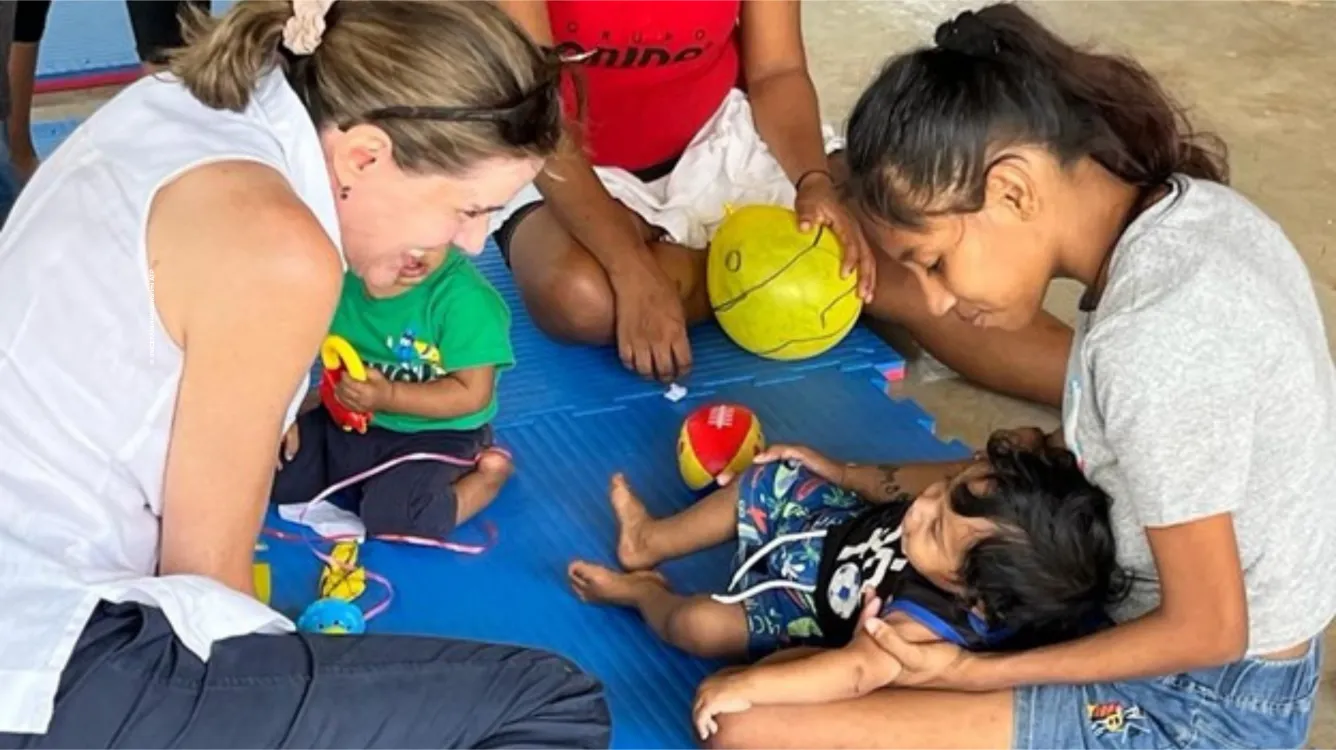Making the Impossible Possible
This blog is part of a series written by President and CEO Sevaun Palvetzian celebrating humanitarians across UNICEF.

One of the questions you may ask yourself as you consider new career chapters is, “is this job the highest and best use of me?”
If you get to meet Sandie Blanchet, you’ll realize she doesn’t need long to answer that question.
Sandie is UNICEF's Representative in Panama. She has an incredible team, including Vicente Teran Gomez, whom I recently met and saw in action.
I read about Sandie, and the career she’s led, and thought, “I need to meet this woman!” As luck would have it, I got to; seeing how UNICEF is helping children in the Darien Gap, the southern tip of Panama.
The Darien Gap is one of the most dangerous migration routes on earth. Less than a generation ago, only a handful of single men even attempted the journey. This year already, more than 50,000 children have crossed the Darien jungle. Half of these children are younger than 5. They arrive exhausted, sick and dehydrated, often traumatized by the violence and dangers they've seen.
UNICEF is there when they emerge from the jungle. Providing safe water, hygiene kits, nutrition and health services (including for women and girls who were victims of sexual violence), and a safe space where kids can play and receive psychosocial support after this harrowing experience.
Seeing this up close was profound.
Sandie greets this, and every other challenge faced over her 29-year career head-on. Her energy is infectious and contagious. I can’t actually even imagine the words, “that’s impossible” coming out of her mouth.
Whether as a Child Protection Officer in UNICEF India, a Deputy Representative in Moldova, or UNICEF’s Representative in Romania, her aim is the same: focus on the systems. Dig at the roots of change so that scale and impact is fully realized.
Sandie and I spent a lot of time discussing this. Given UNICEF's strong alliances and credibility with governments, parliaments, civil society and the private sector, it can influence strategic decisions, laws – even national budgets.
That is impact. When systems nudge, change reverberates. Impact gets spread across millions of children’s lives. Time isn't just spent, it's invested -- with a multiplier effect.
As Sandie shared, "We could use our limited resources to only provide direct services to a few thousand children every year, doing the same thing for a limited number of children. But we don’t. We help the state provide health, education, child and social protection services to all children. This way, we can reach 1.3 million children at the national level.”
How to scale impact is a question that so many leaders – across all sectors – grapple with.
But with Sandie, and UNICEF, it’s built into the DNA.
